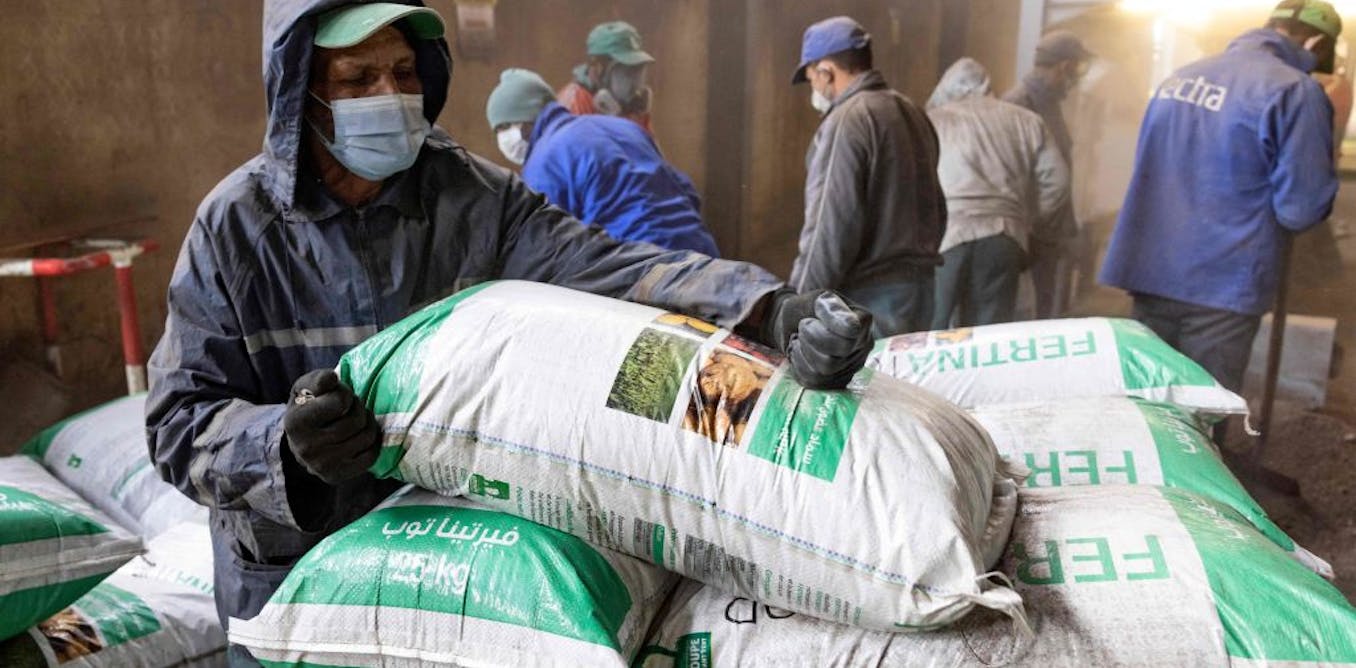Morocco - a top fertiliser producer - could hold a key to the world’s food supplyMorocco has a large fertiliser industry with huge production ...
Published on by Water Network Research, Official research team of The Water Network

Morocco has a large fertiliser industry with huge production capacity and international reach. It is one of the world’s top four fertiliser exporters following Russia, China and Canada.
Fertilisers tend to divide into three main categories; nitrogen fertilisers, phosphorus fertilisers, potassium fertilisers. In 2020 the fertiliser market size was about US$190 billion.
Morocco has distinct advantage in the production of phosphorus fertilisers. It possesses over 70% of the world’s phosphate rock reserves, from which the phosphorus used in fertilisers is derived. And this makes Morocco a gatekeeper of global food supply chains because all food crops require the element phosphorus to grow. Indeed, so does all plant life. Unlike other finite resources, such as fossil fuels, there is no alternative to phosphorus.
In 2021, the global phosphorus fertiliser market amounted to about US$59 billion. In Morocco, the sector’s 2020 revenues amounted to US$5.94 billion. Office Chérifien des Phosphates, the producer owned by the Moroccan state, accounted for about 20% of the kingdom’s export revenues. It is also the country’s largest employer, providing jobs for 21,000 people.
Morocco plans to produce an additional 8.2 million tonnes of phosphorus fertiliser by 2026. Currently production is at about 12 million tonnes.
The state company recently announced that it would increase its fertiliser production for the year by 10%. This would put an additional 1.2 million tonnes on the global market by the end of the year. This will significantly help markets.
But, as I argue in a new report, Morocco faces new challenges. Its production of fertiliser is threatened by increasingly daunting environmental and economic challenges. They include the COVID pandemic and the severe supply chain disruptions that have followed.
The timing to address these is crucial.
Russia is currently the world’s largest fertiliser exporter – 15.1% of total exported fertilisers. And fertiliser represents one of the greatest vulnerabilities for both Europe and Africa. For instance, the EU27 (all of the 27 member state of the European Union) as a whole depends on Russia for 30% of its fertiliser supply. Russia’s advantageous position is amplified by its status as the world’s second-largest natural gas producer. Gas is a main component of all phosphorus fertilisers as well as nitrogen fertilisers.
Because of this, Russia’s invasion of Ukraine has serious implications for global food security. Both in terms of supply, and also because fertiliser can be used a economic weapon or tool.
Morocco could therefore become central to the global fertiliser market and a gatekeeper of the world’s food supply that could offset the attempt to use fertiliser as a weapon.
Attached link
https://theconversation.com/morocco-a-top-fertiliser-producer-could-hold-a-key-to-the-worlds-food-supply-180797Taxonomy
- Fertilizers
- Fertilizer
- Fertilizers and Pesticides
- Fertilizer